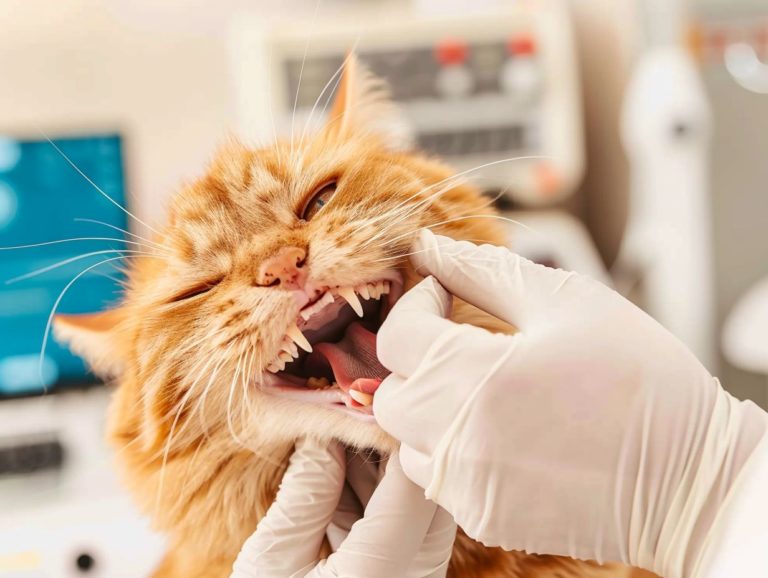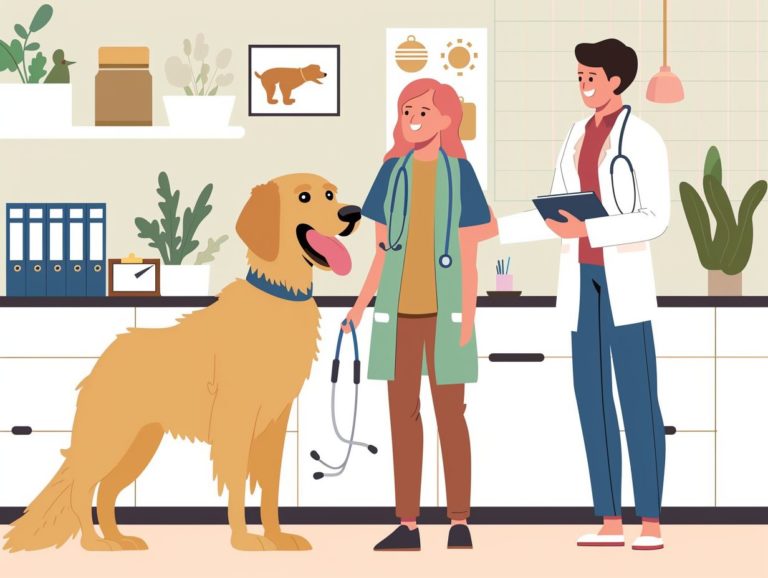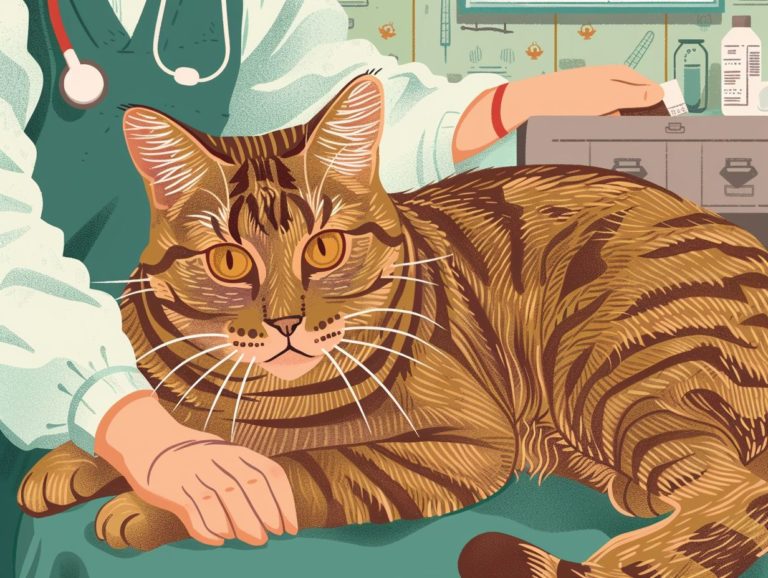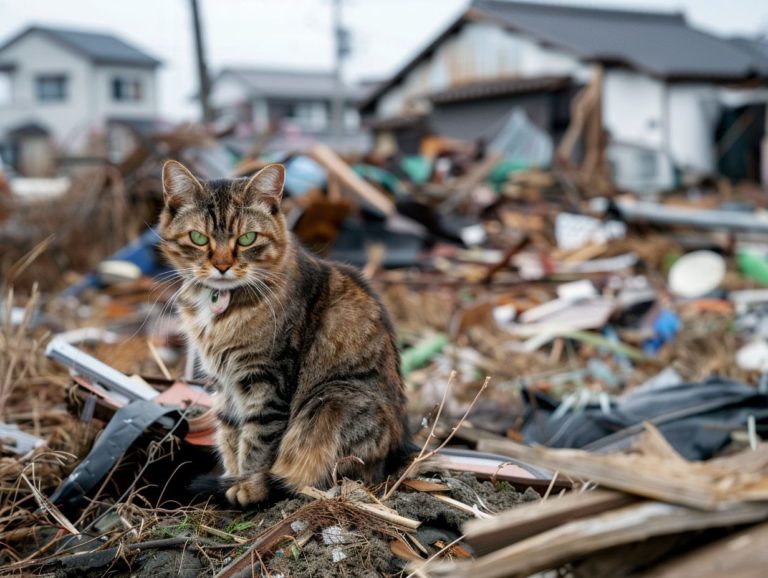The Role Of A Pet Health Advocate In Managing Your Cats Care
As pet owners, it is our responsibility to advocate for the health and well-being of our pets, with a particular focus on cats. This article delves into the importance of being a pet health advocate, emphasizing the significance of understanding cat health needs, effective communication with veterinarians, and proactive measures in advocating for a cat’s well-being.
The content covers common cat health issues, preventive care practices for cats, and strategies to establish a strong relationship with your veterinarian. By following the guidance provided in this article, we can enhance our role as advocates for our cats’ health.
Key Takeaways:
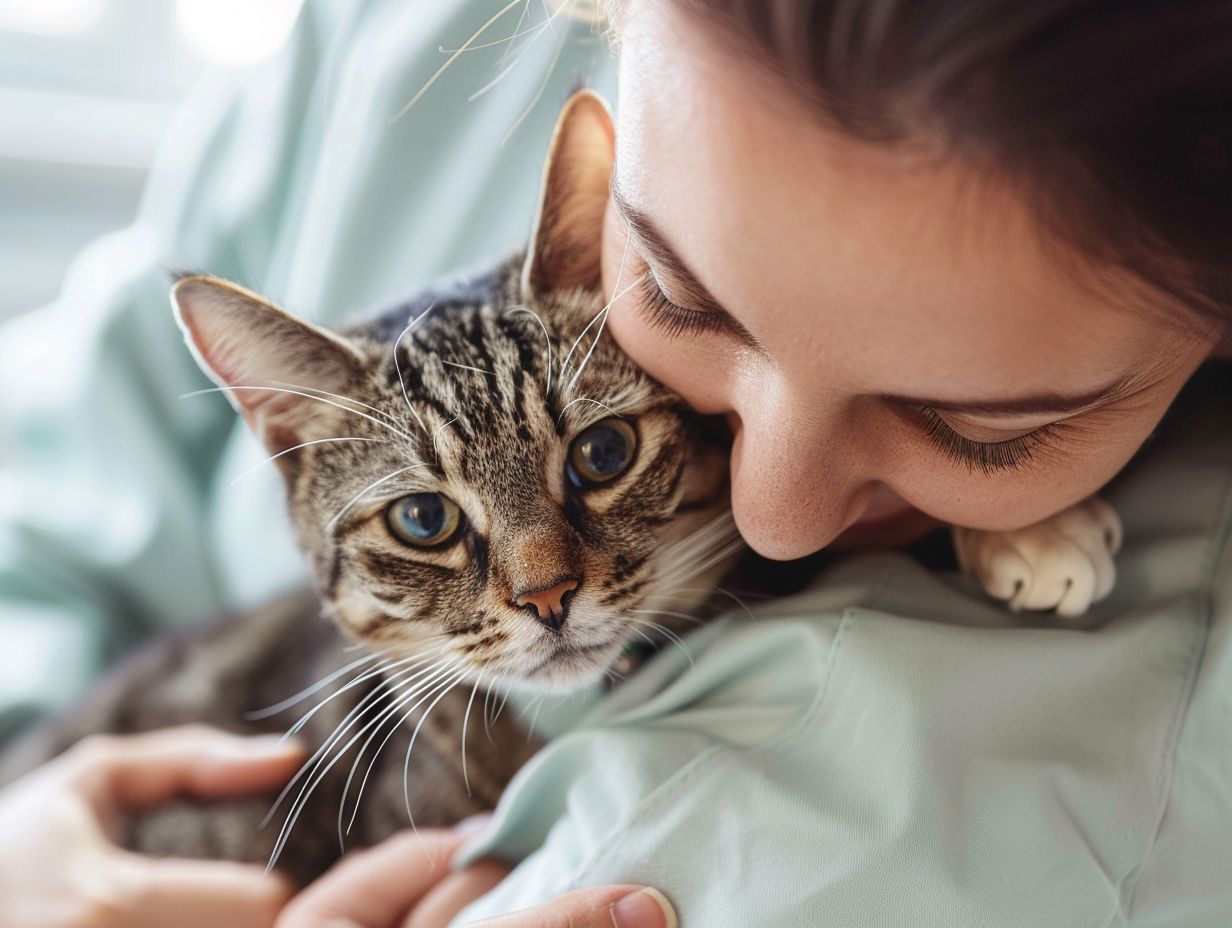
The Importance of Pet Health Advocacy
Advocacy for pet health is crucial as it directly impacts the overall well-being and longevity of our pet populations. Pet health advocacy encompasses the promotion of preventive medicine, collaborative support for veterinary professionals, and the dissemination of knowledge on holistic pet health practices. Strong pet health advocacy ensures that pets undergo regular check-ups, vaccinations, and screenings for early disease detection. This proactive approach not only enhances the quality of life for pets but also minimizes the financial burden on pet owners by identifying illnesses at an early stage.
Additionally, pet health advocacy fosters responsible pet ownership, leading to stronger bonds between pets and their owners while nurturing a sense of care and empathy within the community.
What is a Pet Health Advocate?
A Pet Health Advocate is someone who works on behalf of animals to ensure their health and welfare. Pet Health Advocates in Europe and Spain play a critical role in addressing public health concerns related to animals and promoting animal welfare. They educate the public about proper pet care, stress the importance of spaying and neutering, and assist with adoptions to reduce the overpopulation of stray animals.
These advocates collaborate with veterinary teams, shelters, and local governments to develop and implement vaccination campaigns, disease control measures, and protocols for the humane treatment of animals. They also advocate for Trap-Neuter-Return programs for community cats. Ultimately, Pet Health Advocates help foster a society characterized by respect and compassion for all living creatures.
Why is it Important for Cat Care?
Advocating for cat health is particularly beneficial due to the unique health challenges faced by cats. This advocacy focuses on disease prevention (such as toxoplasmosis and rabies), disease management (such as dermatophytosis), allergy sensitivity, holistic care, low-stress handling, and protection of wildlife and biodiversity.
Feral cats, often overlooked in terms of healthcare, are a significant aspect of cat advocacy. By promoting responsible management of feral cat colonies, individuals can help limit disease transmission and ensure the welfare of these often marginalized animals.
Advocating for disease management strategies is vital not only for the well-being of individual cats but also for broader conservation objectives, as it helps reduce the spread of infections that impact both wild and domestic feline populations.
How to Be an Effective Pet Health Advocate
Becoming an Effective Pet Health Advocate involves participating in community cat management, collaborating with veterinarians, and raising awareness about public health issues relating to pet wellness. Advocates can create holistic solutions for the issue of pet health, prevent the spread of zoonotic diseases, and promote responsible pet ownership and care.
By participating in community cat management programs, individuals can contribute to controlling the population of stray cats, reducing the risk of disease transmission, and enhancing the overall health and safety of both animals and humans. Raising awareness of zoonotic diseases such as rabies and toxoplasmosis is crucial for public safety.
Engaging in conversations with veterinary professionals can offer insights into the latest technology and techniques for pet care and treatment, give the power toing advocates to make informed decisions while advocating for animal health.
Communication with Veterinarians

To ensure the best possible care for pets, Pet Health Advocates need to communicate effectively with veterinarians. Collaboration with veterinary professionals can result in improved disease prevention, increased pet adoption, and more effective management of community cat populations.
By sharing valuable information through established communication channels, Pet Health Advocates can inform veterinarians about pet behavior patterns and health concerns they have observed. This enables veterinarians to develop personalized care and prevention plans, ultimately enhancing the overall health of the animals.
Successful collaboration between advocates and veterinarians has also led to the promotion of responsible pet ownership, contributing to higher pet adoption rates and lower instances of pet abandonment. Through community cat programs, advocates have partnered with veterinarians to implement effective Trap-Neuter-Return (TNR) programs, which help control the population of feral cats and enhance their welfare.
Understanding Your Cat’s Health Needs
An effective Pet Health Advocate is someone who comprehends the holistic needs of a cat’s health, which encompass exercise, stress management, allergies, and promoting self-esteem, among other aspects. Addressing these needs holistically can enhance a cat’s quality of life and longevity.
Regular physical activity plays a vital role in maintaining a cat’s physical health by preventing obesity and associated health issues. Exercise also contributes to a cat’s mental well-being. Interactive play sessions serve as an excellent way to encourage your cat to stay active.
Stress management is crucial for a cat’s overall well-being. Pet owners should strive to create a stress-free environment by offering hiding spots, reducing exposure to stressful stimuli, and providing safe and cozy resting places for cats to nap and relax.
Allergies can be managed holistically by selecting appropriate food and minimizing exposure to potential allergens. Boosting a cat’s self-esteem involves providing a calm and secure environment, positive reinforcement, engaging toys, scratching posts, and comfortable resting spots.
By following these holistic care practices, you can strengthen the bond with your cat and ensure its long-term health.
Common Health Issues in Cats
Understanding Common Health Issues in Cats enables Pet Health Advocates to deliver comprehensive care. From diagnosing allergies and dermatophytosis to preventing diseases such as rabies through vaccination, advocates play a crucial role in promoting preventive care and overall feline health.
By familiarizing themselves with common health issues, advocates can closely monitor their cats and identify symptoms of prevalent issues such as digestive disorders and respiratory infections at an early stage. Regular veterinary visits are essential for promptly diagnosing and treating any medical concerns.
Cats with weakened immune systems are particularly susceptible to diseases, underscoring the importance of comprehensive care. Recognizing and addressing feline stress has also been found to significantly improve the overall health and quality of life of cats.
Identifying and Managing Health Problems
Pet Health Advocates should be knowledgeable in identifying and managing health problems in cats to collaborate effectively with veterinarians in ensuring proper care and educating cat owners and the public about health issues and preventive measures.
Partnerships with veterinarians and public awareness campaigns are key in addressing diseases, allergies, and other health issues, enabling early detection and diagnosis for more effective treatment and prevention. Pet Health Advocates play a crucial role in educating cat owners on common health issues such as dental problems, obesity, and diabetes, as well as the importance of regular veterinary check-ups.
Those who advocate for holistic care, encompassing measures to enhance the physical, mental, and emotional well-being of cats, are the most successful in improving the overall health and quality of life of feline companions.
Working with Your Veterinarian
Collaboration with a veterinarian is a crucial aspect of Pet Health Advocacy to ensure comprehensive pet care. Working together to combat disease, advocating for improved holistic care practices, and discussing sensitive topics such as euthanasia are all important components of a strong partnership focused on providing the best possible care for pets.
Establishing a strong partnership with a veterinarian can lead to early disease detection, prompt interventions, and better outcomes for the pet. Advocates help bridge the communication gap between pet owners and veterinarians, ensuring informed decisions and personalized treatment plans. This collaborative approach enhances the quality of care and promotes lifelong pet health. Advocates play a vital role in facilitating compassionate treatment options and end-of-life care decisions.
Building a Strong Relationship
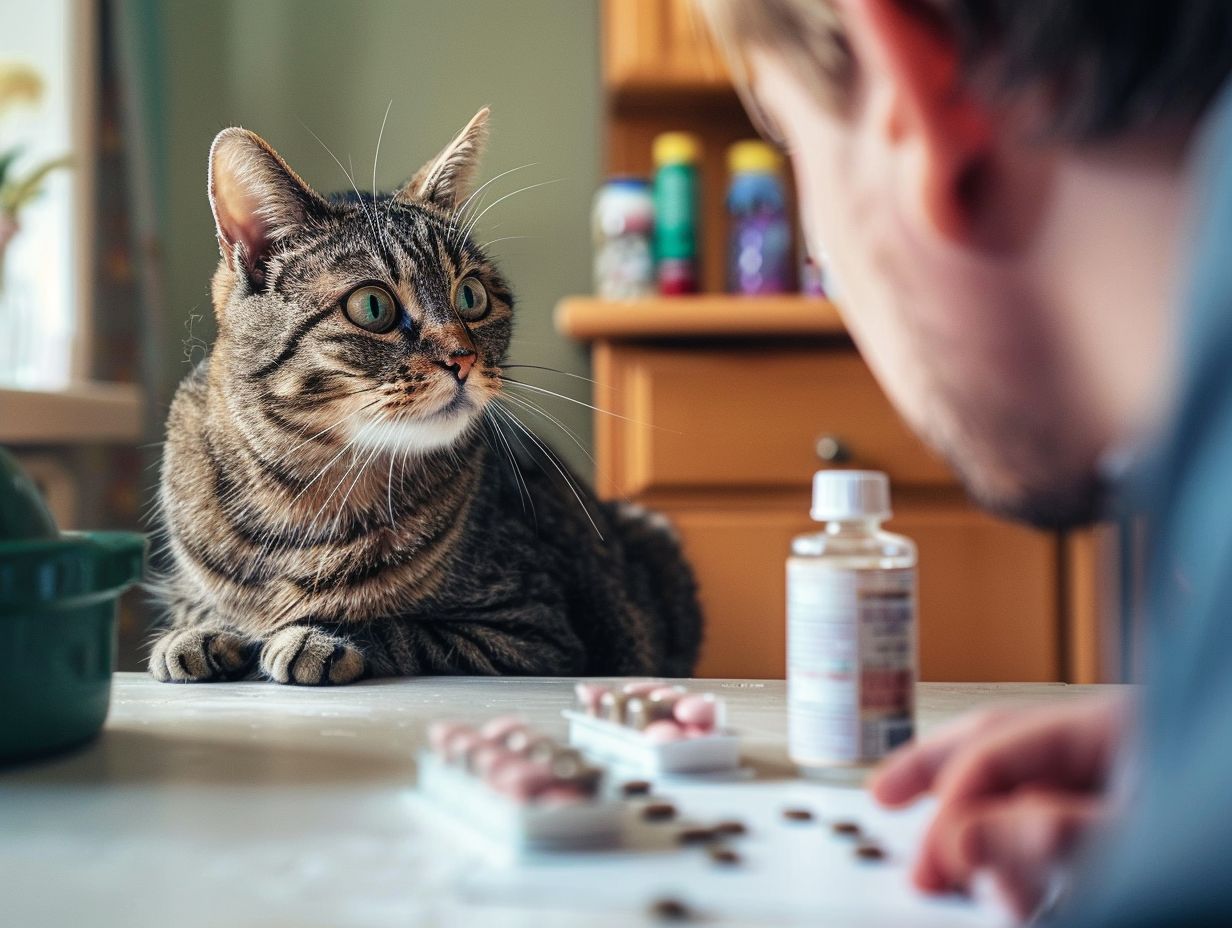
Building a strong relationship with your veterinarian is essential in pet health advocacy, as key principles such as trust, communication, and collaboration with veterinary professionals contribute to better care for pets, successful adoptions, and improved public health. A solid bond with veterinarians leads to higher quality care for pets and, crucially in the realm of pet health advocacy, a reduction in the severity of issues necessitating treatment.
Open dialogues, sharing information, and tackling challenges together can positively influence treatment outcomes and raise awareness of public health issues concerning animals. As a result, advocacy efforts can have a beneficial impact on the health of pets and the communities in which they and their owners reside.
Advocating for Your Cat’s Needs
Advocating for Your Cat’s Needs involves promoting preventive care, vaccination programs, and community cat management. By advocating for these initiatives, pet health advocates can ensure their cats’ well-being and support community public health efforts.
Preventive care measures, including regular check-ups, proper nutrition, and parasite control, significantly enhance a cat’s overall health and help prevent future illnesses. Supporting vaccination programs not only safeguards your cat but also protects the broader community from contagious diseases.
Encouraging community cat management strategies such as trap-neuter-return programs and responsible breeding practices can help reduce overpopulation and curb the spread of disease among stray and feral cats, fostering a healthier environment for all cats in the community.
Preventive Care for Cats
Preventive care for cats is a proactive method for maintaining the health and welfare of feline companions. This involves the regular administration of vaccinations, disease prevention protocols, and initiatives to reduce diseases like toxoplasmosis and rabies. By following preventive care practices, pet health advocates can ensure a healthier future for their cats.
Regular vaccinations play a crucial role in protecting cats against life-threatening diseases such as feline leukemia and calicivirus. Keeping vaccinations up-to-date can significantly reduce the risk of cats contracting these diseases. Disease prevention protocols, including proper hygiene practices and regular veterinary check-ups, are essential components of preventive care for cats. Pet health advocates are instrumental in educating cat owners on the importance of preventive care and encouraging active participation in their cats’ well-being.
Tips for Maintaining Your Cat’s Health
Regarding maintaining your cat’s health, it is essential to care for not only their physical well-being but also their mental and emotional health. Owners can take control of factors such as exercise, allergy management, stress reduction, and self-esteem boosting to contribute to their overall health and happiness.
Regular exercise, achieved through interactive play with toys or laser pointers, is key to keeping cats healthy and in good shape. Providing a safe indoor environment with scratching posts and climbing structures can help keep cats mentally stimulated. Both physical and mental health play vital roles in ensuring cats are healthy and content.
To manage allergies, measures such as implementing a no-shoe policy and investing in hypoallergenic bedding can help reduce dust and pollen in the home. Addressing stress and anxiety can involve creating hiding spots and using calming pheromone diffusers. Boosting a cat’s self-esteem can be achieved through positive reinforcement, such as giving treats or praise for good behavior, which strengthens the bond between cat and owner.
Frequently Asked Questions
1. What exactly is a Pet Health Advocate and why is their role important in managing my cat’s care?
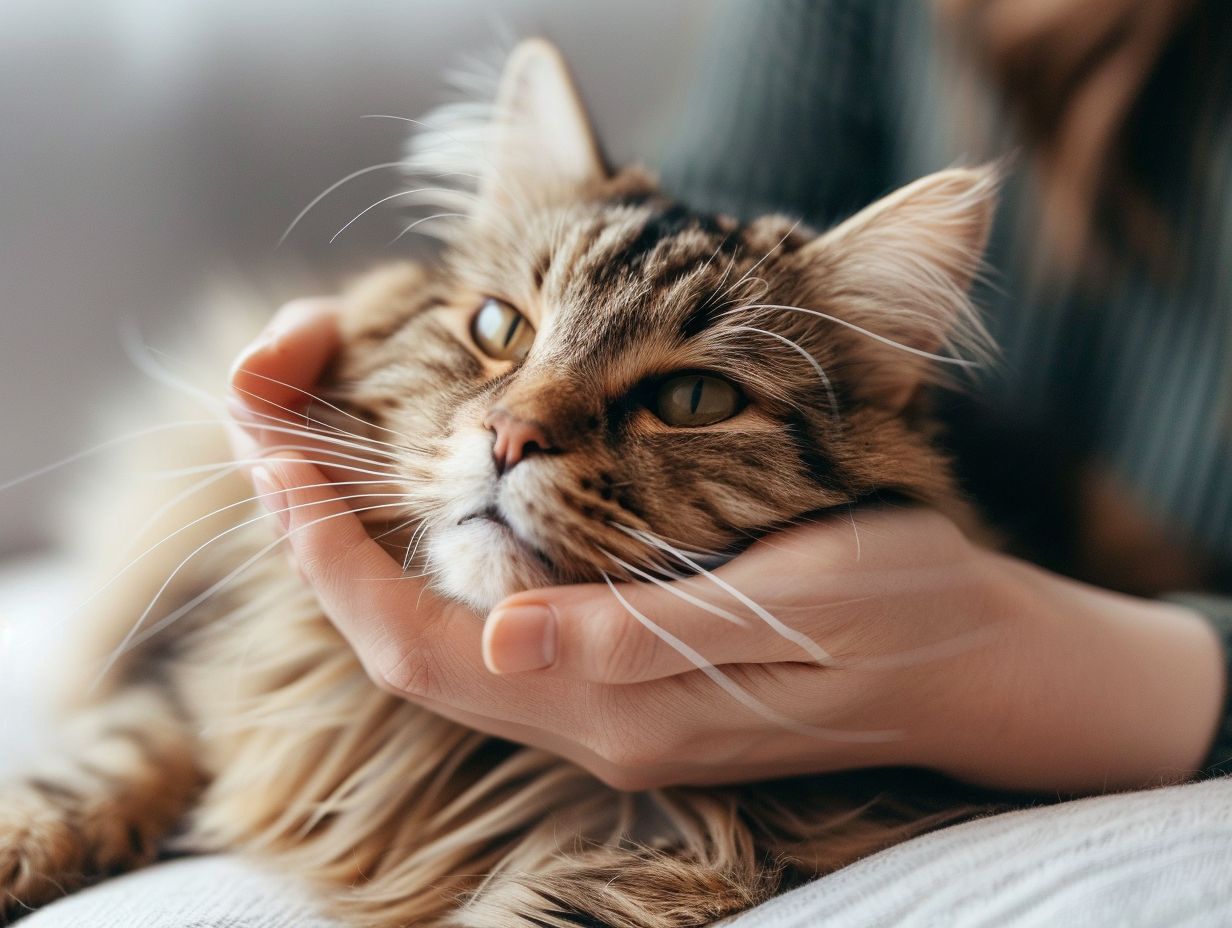
A Pet Health Advocate is a trained professional who acts as a liaison between pet owners and their veterinary team. They are responsible for ensuring that your cat receives the best possible care by advocating for their health needs and providing education and support to pet owners.
2. How can a Pet Health Advocate help in managing my cat’s care?
A Pet Health Advocate can assist in various ways such as scheduling appointments, coordinating with specialists, providing medication reminders, and helping you understand your cat’s medical conditions and treatment options.
3. Can a Pet Health Advocate also assist in financial aspects of my cat’s care?
Yes, a Pet Health Advocate can help with managing the financial aspects of your cat’s care by providing cost estimates, negotiating with veterinary providers, and exploring alternative treatment options that may be more affordable.
4. What qualifications should I look for when choosing a Pet Health Advocate?
It is important to choose a Pet Health Advocate who is certified, experienced, and has a strong understanding of veterinary medicine. Look for someone who is a Certified Pet Health Advocate (CPHA) or has a background in veterinary technology or nursing.
5. How involved should I be in my cat’s care if I have a Pet Health Advocate?
While a Pet Health Advocate can take on many responsibilities in managing your cat’s care, it is still important for pet owners to be involved and informed. The level of involvement will depend on your specific needs and preferences, but ultimately, the health and well-being of your cat should always be a team effort.
6. Can a Pet Health Advocate also assist in emergency situations?
Yes, a Pet Health Advocate can play a crucial role in emergency situations by helping you make quick and informed decisions for your cat’s health. They can also coordinate with emergency veterinarians and provide support during and after the emergency.

